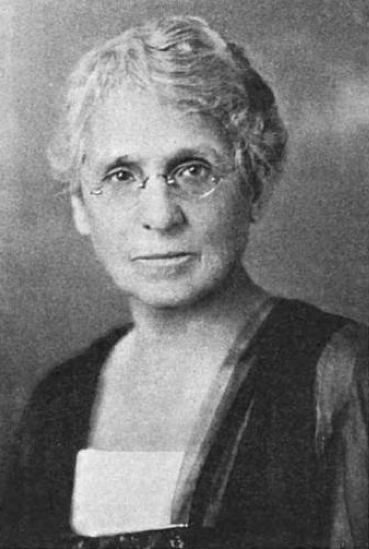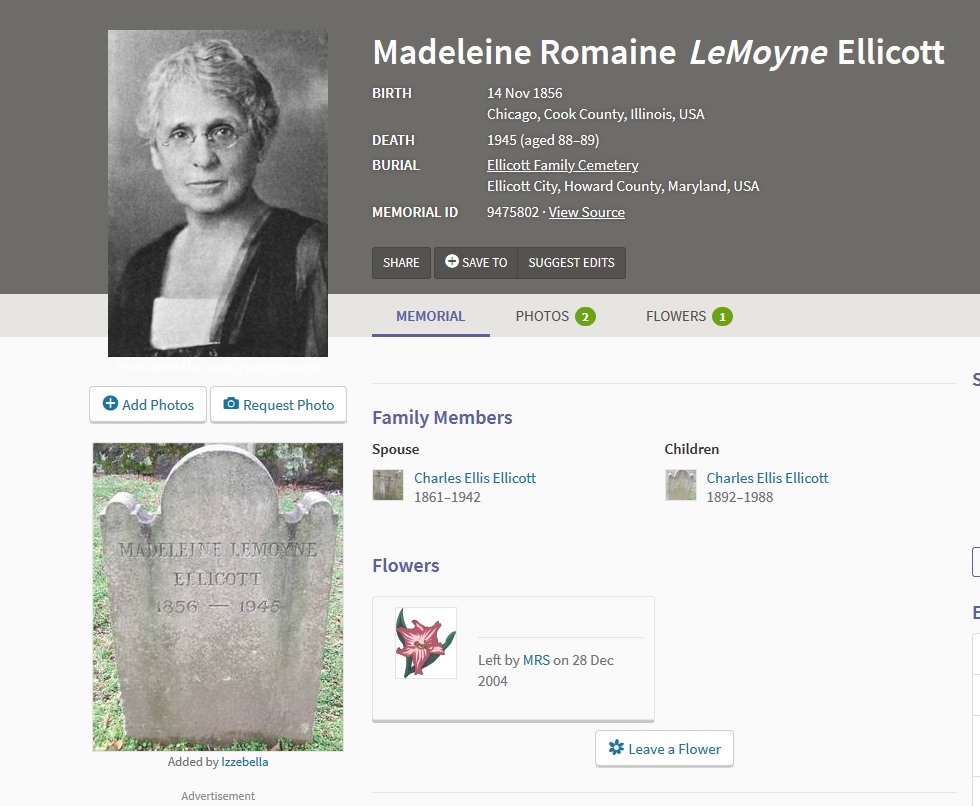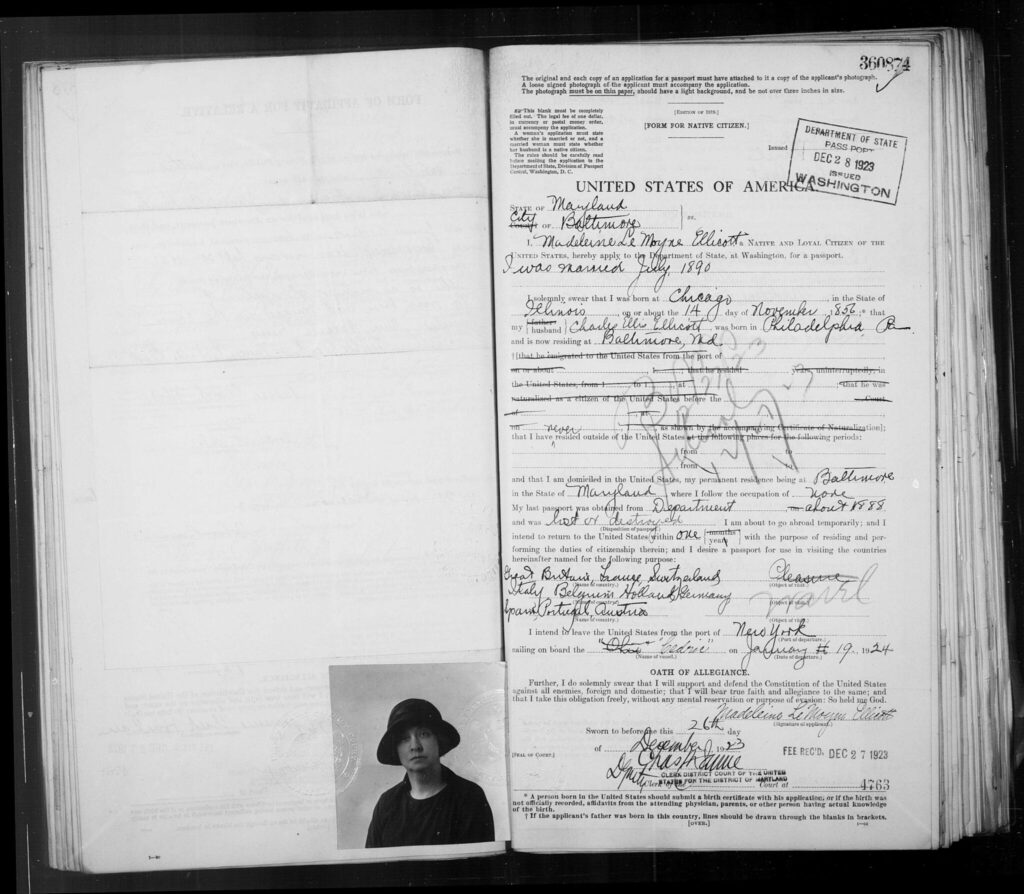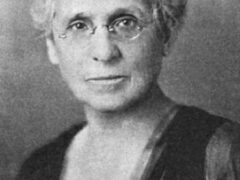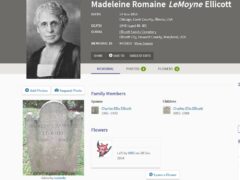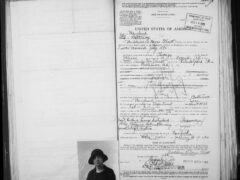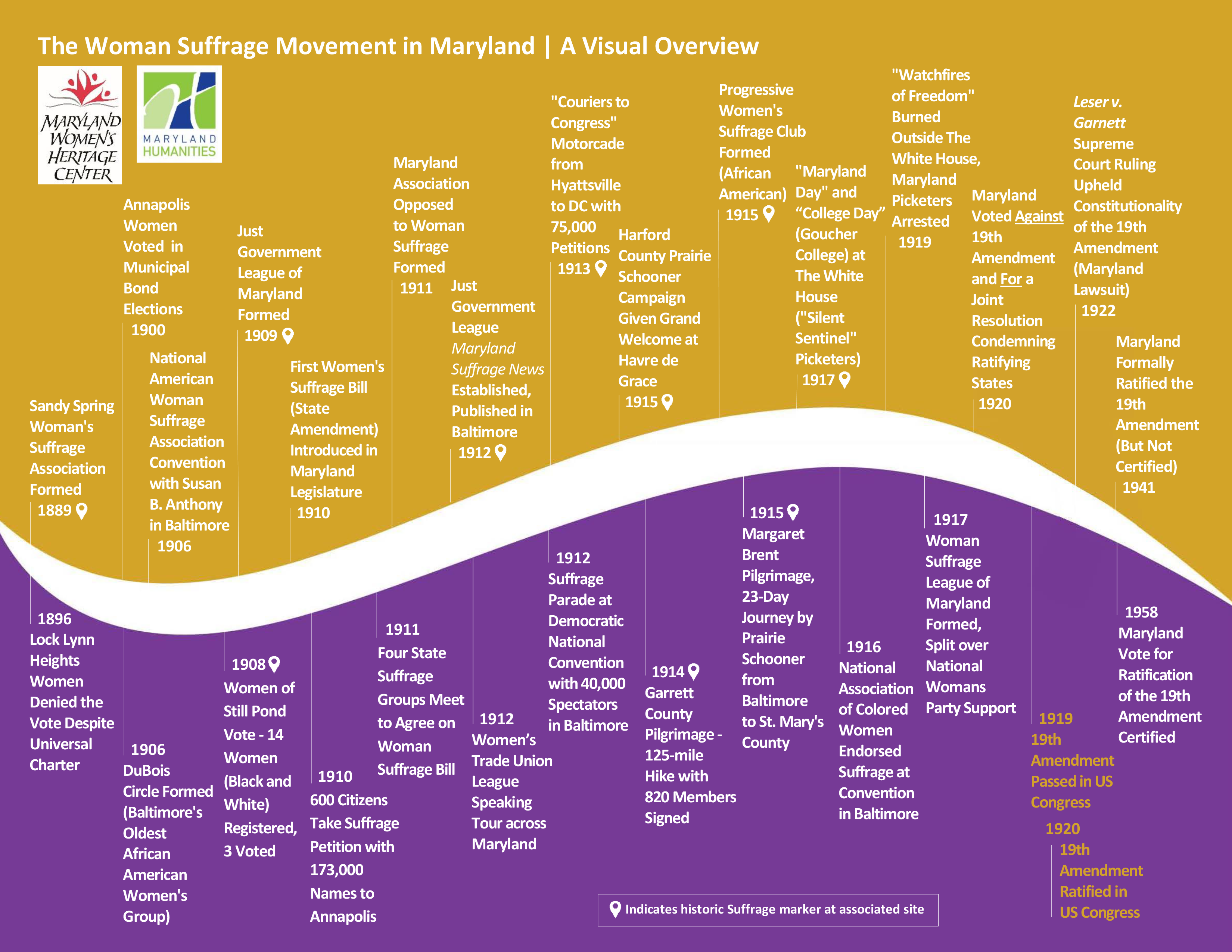Madeleine Lemoyne Ellicott
by Diane Weaver, PhD
Founder and twenty-year president of the Maryland League of Women Voters
Madeleine Ellicott was born in Chicago in 1856. Although she had a desire to pursue medical studies, with her father’s consent she studied chemistry at Rush Medical School and spent a year at the polytechnic in Zurich, Switzerland.
In June 1890 she married Charles Ellis Ellicott, a descendant of the founder of Ellicott City, Maryland, and she became a relative by marriage to the late Elizabeth King Ellicott.
As the Maryland suffrage movement matured, it used its network, as did other activists, to rally support. Women throughout the state, in addition to working for a state constitutional amendment, gathered petitions for a federal amendment. Writing in 1917 to suffrage activist Irma Graham in Salisbury, Wicomico County, Madeline Ellicott, vice president of the State Franchise League, referred to an “urgent” letter from Carrie Chapman Catt of NAWSA (National American Woman Suffrage Association) requesting information on Maryland’s petition drive: “It will be mortifying if Maryland fails to do her duty towards this final drive … It is of course extremely difficult, but we should try and do our best.”
With World War I over, national and Maryland suffrage activists returned to the issue they had for the most part placed in abeyance. The passage of the Nineteenth Amendment in June 1919 and the resulting legislative campaign created one final legislative opportunity for Maryland suffragists, who expected the ratification effort to be extremely difficult.
The growing conviction of the inevitability of national ratification on the part of Maryland white suffragist activists was especially apparent among leaders of the Maryland Women’s Suffrage League, and it helped to explain the half-hearted ratification effort. Madeleine Ellicott wrote to Roselle Handy in Worcester County, “I fear you will all have the vote thrust upon you before long, and then it will be citizenship schools before there is time for suffrage meetings.”
Ellicott was convinced that ratification was a dead issue in Maryland. “I think,” she wrote to Lilla Crawford in Hagerstown, “we should put very little energy and money in trying to influence the legislature for ratification. They will ratify when the bosses … tell them to do so …” In March 1920, Maryland’s legislature defeated ratification.
Madeleine Ellicott continued to advocate an “organized body” that would be free of partisan ties. At its Victory Convention in February 1920, NAWSA reconstituted itself as the National League of Women Voters. As founder and twenty-year president of the Maryland League, in Ellicott’s view women should both join political parties and work for their improvement from the inside and outside as members of the League of Women Voters. Her vision for the league encompassed the bringing together of women civic and party activists to pursue goals set by women, not for them.
Madeleine Ellicott died in 1945. She was inducted into the Maryland Women’s Hall of Fame in 1996.
Research Citations:
Weaver, Diane E. “Maryland Women and the Transformation of Politics, 1890s-1930.” Unpublished Dissertation, University of Maryland, 1992.
Excerpts, Maryland Women’s Hall of Fame Biography. Copyright, Maryland State Archives, 2001.

